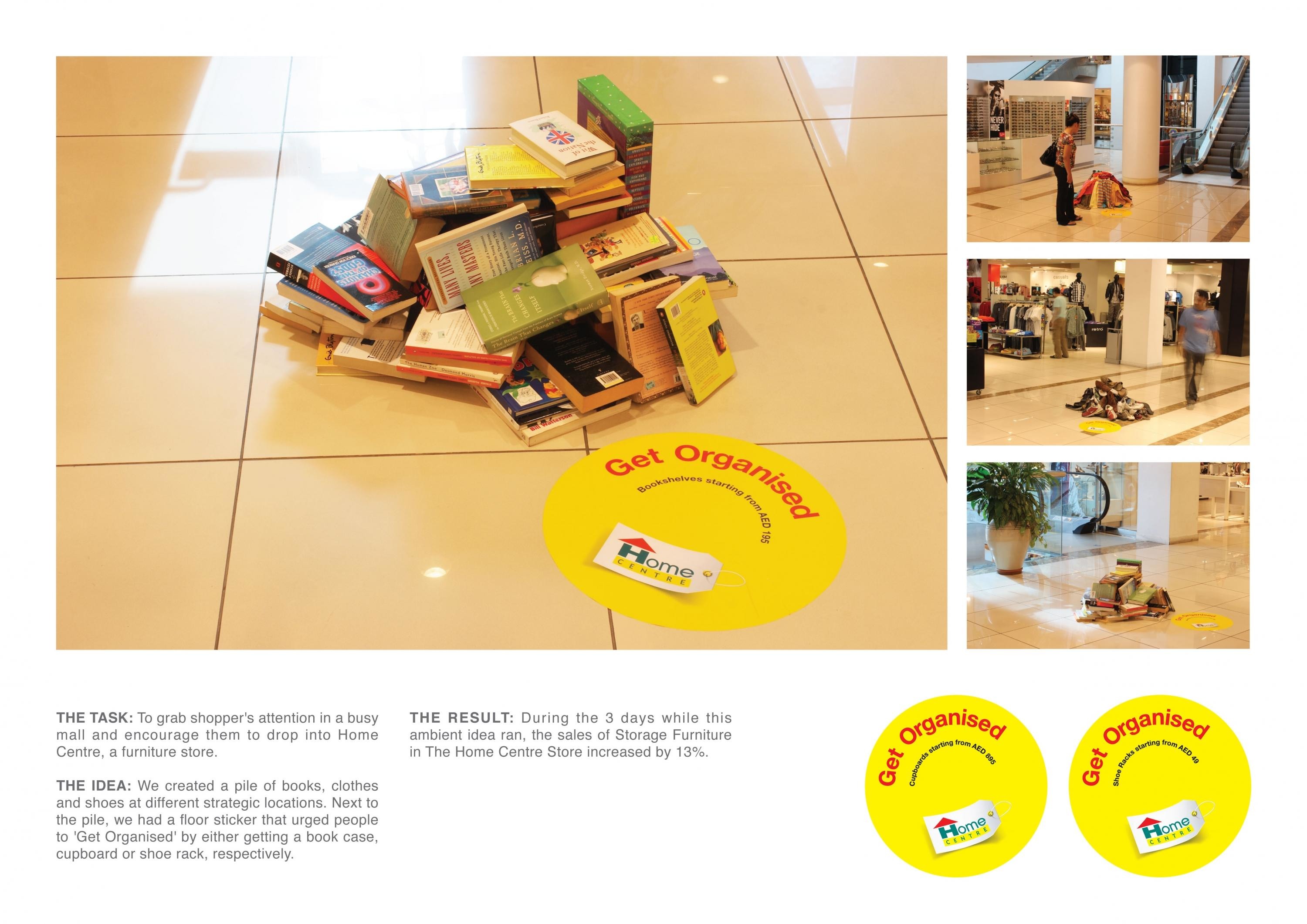Cannes Lions
The Homecoming
LEO BURNETT, Dubai / HOME CENTRE / 2024



Overview
Entries
Credits
OVERVIEW
Background
War. Pandemic. Natural disasters. Crises.
In the Middle East, they have caused deaths, including of adults, including of parents.
In turn, they’ve caused families to break.
And the aftermath has left children, orphaned, without a home.
These children need families and homes to adopt them and make them their own.
But adoption and giving children a home, is inaccurately perceived to be against religion and is hence, perceived to be illegal.
So, the process to adopt a child has been unknown.
Children needing a home, are left in orphanages.
Home Centre, is a leading furniture retail brand in the Middle East.
Its belief is that everyone deserves a home they feel at home in.
And its purpose is to enable people in every home to create and share their own home’s story.
With many orphans left without a home, Home Centre had to pivot its social good initiative towards adoption.
Idea
We launched “The Homecoming”, the first initiative by a brand in the Middle East to help orphaned children find a family and a home to call their own.
We enabled Home Centre to become the first brand to propagate and support adoption in the region, by challenging the cultural taboo around adoption in the Middle East, and by helping and enabling parents-in-waiting to adopt through content, tools and resources.
A musical narrative short on social and digital platforms launched the initiative, sharing the journey of an Arab couple expecting a baby over 9 months; the time it takes to adopt a child.
Based on the insight that you’re also “expecting your adopted baby” just like other parents “expect their own baby”, with intentional misdirection, it feels like a typical film of expecting parents, until the rug-pull, where we reveal the wife isn’t pregnant, and that they are adopting a child.
Strategy
The POV: “Just because they are not born our own, doesn’t mean we can’t give them a home.”
More often than not, the most pertinent societal problems are also the ones with the biggest taboos.
In the Middle East, adoption and fostering as a topic and a concept isn't just frowned upon, it is actively denounced - by some religious scholars, by society, by relatives in the family (including one’s parents) and by social circles.
Legally, it is challenging as well owing to the lack of knowledge and the societal taboo.
First, we had to break the taboo and disarm people into seeing the good they’d do to a child’s life by adopting the child.
Then, we had to be the ally to those who wanted to adopt by giving them access to knowledge, organizations and emotional support they needed to make the process of adoption known, easier and effective.
Description
“Iconic brands address acute tensions. By tapping into anxieties, they develop a status transcending functional benefits. They challenge people to reconsider accepted thinking and behaviour.” (Oxford University, “How Brands Become Iconic”)
The journey to becoming an iconic brand in the region, started with launching an initiative no brand had dared do in the region.
We launched “The Homecoming”, the first initiative by a brand in the Middle East to help orphaned children find a family and a home to call their own. And enabled Home Centre to become the first brand to propagate and support adoption in the region, by challenging the cultural taboo around adoption in the Middle East, and by helping and enabling parents-in-waiting to adopt through content, tools and resources.
A narrative short film, unlike the usual ads and commercials seen in the region, promoted via social and digital media, launched the initiative. It features two Arab protagonists. A man and a woman. Expecting a baby. A fetal ultrasound. Emotional crests and troughs. A psychology book around a new baby. Arguments. An angry father. His? Or hers? Making up. Sharing food. Cravings. Crises. Ambiguity. Expectations. Six months to go. Three months to go. Assembling a crib. Tension mounting. The wait. D-day. Registering. A new baby being welcomed home. The film, intentionally, includes no words. You understand, or think you do. And the rug pull delivers the meaningful perspective, when we reveal the wife isn’t pregnant, as they embrace a child who is not their own.
The soundtrack carrying the film is a licensed adaption of Elvis Presley’s “Can’t Help Falling in Love”. And the story of the film gave an entirely new meaning to Elvis’ iconic song.
As the film went viral, taking on this taboo resulted in backlash with 53% negative sentiment.
But we expected it and had a plan.
So, we persuaded Home Centre and persisted with the initiative.
Influential news and media platforms were lobbied with and joined us.
Social media influencers were approached, and the outreach drove organic support for initiative with them giving adoption and fostering a voice.
Religious preachers were collaborated with, as they clearly stated adoption and fostering were not against Islam, and were allowed.
This helped tackle all negative sentiments.
We helped people adopt and foster beyond creating the much-needed awareness about the need.
So, we transformed the brand’s digital hub, the Home Centre’s website, from just promoting products to also promoting adoption and fostering.
A directory of organizations showed couples where they could adopt and foster from.
A content series with a credible Arab psychologist, shared insights to help couples pre, during and post adoption and fostering.
And a content series with a reputed legal advisory firm shared the legal process.
Original soundtracks around adoption became part of a music album on streaming platforms, with proceeds going to affiliated NGOs.
A series of immersive art experiences titled “Unseen Tears” across exhibition spaces and across Home Centre stores, told the untold stories of orphaned children, promoting the initiative further.
Outcome
180+ million reach.
1.2billion earned impressions.
1219 free airings.
132+ million views.
Reached 65% of the region.
$6.2 million free media.
An enduring impact:
• The overall initiative, driven by the film, led to 7300+ children adopted adopted across the Gulf region via affiliated centers.
• Importantly, new laws and Government representatives came into effect, supporting integration of orphans into homes and society.
• Home Centre committed to continue the initiative via the digital hub and social content to help more children find a home, 2024 and beyond.
Some testimonials from Arabs, in particular, as seen towards the end in the context case:
“You have paved the way for many parents struggling with this decision.”
“It’s a feeling I cannot describe. I’m so happy I did it.”
“We were encouraged to do this. Everyone was positive.”
“With this child, I've learned the meaning of life more than ever before.”
Similar Campaigns
12 items










